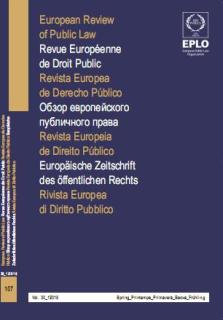
Freedom of Expression in the Internet -
The Role of States, Citizens and Intermediaries
Case Study of the Slovak Republic
Professor, Public Defender of Rights of the Slovak Republic
As the evidence seems to suggest and as is shown throughout this paper, and in particular through the presentation of different case studies, the police investigators and state prosecutors were - and arguably still are - struggling with applying the existing legal framework to tackle hate crimes. Despite the recent changes to the Slovak Criminal Code, there still seem to be discrepancies and lack of understanding amongst the state agents - but also the public at large - as to what does and what does not constitute a hate crime and how such crimes are to be prosecuted. This paper first outlines the current legislative framework related to hate crimes in Slovakia. It then proceeds to analyse the role the State has taken in relation to particular case studies - paying particular attention to the time it took to investigate the offences, for which crimes the individuals were being prosecuted, what charges they faced and what were their sentences in the end. It then discusses the role of citizens, in particular the different movements which sprung arguably as a result of the increase in hate speech on the Internet. Finally, it considers the role of intermediaries, such as the social media providers and other bodies and regulators involved.
A l’évidence, et comme cet article le montre, à travers notamment la présentation de plusieurs affaires, les enquêteurs de la police et les procureurs ont eu - et ont probablement encore - du mal à appliquer le cadre juridique existant pour lutter contre les crimes inspirés par la haine. Malgré les récents changements intervenus dans le code pénal slovaque, il semble qu’il y ait encore des disparités et un manque de compréhension chez les agents de l’Etat - mais aussi dans le grand public - quant à ce qui constitue et ce qui ne constitue pas un crime inspiré par la haine et la manière dont ces crimes doivent être poursuivis. Cet article expose tout d’abord le cadre législatif actuel relatif aux crimes inspirés par la haine en Slovaquie. Il procède ensuite à une analyse du rôle que l’Etat a joué en rapport avec certaines affaires particulières - en portant une attention spéciale au temps qu’il a fallu pour enquêter sur les infractions commises, aux crimes pour lesquels les individus étaient poursuivis, à la nature des charges qui pesaient sur eux et aux peines auxquelles ils ont été finalement condamnés. Il discute ensuite du rôle des citoyens, notamment dans les différents mouvements qui sont peut-être nés de l’augmentation des discours de haine sur Internet. Enfin, il considère le rôle des intermédiaires, tels que les fournisseurs de réseaux sociaux et autres organismes et régulateurs concernés.
* The author would like to express her thanks to Mgr. Katarína Trnková, LL.M. from the Office of the Public Defender of Rights for her deep research regarding the case studies.





















